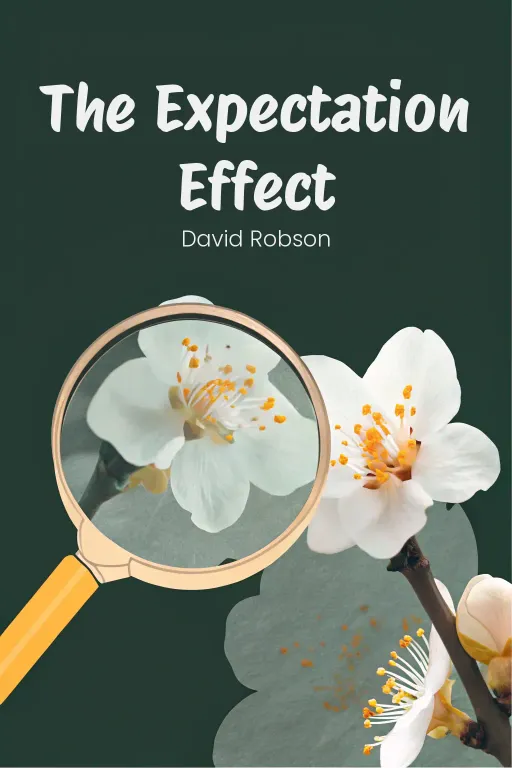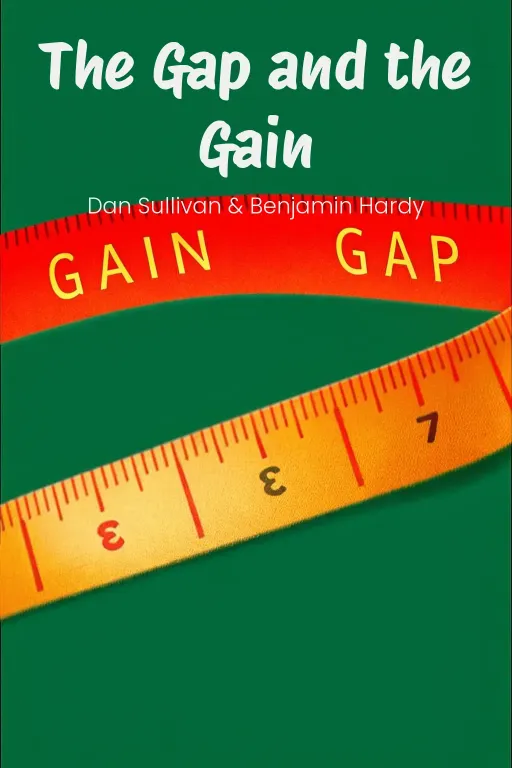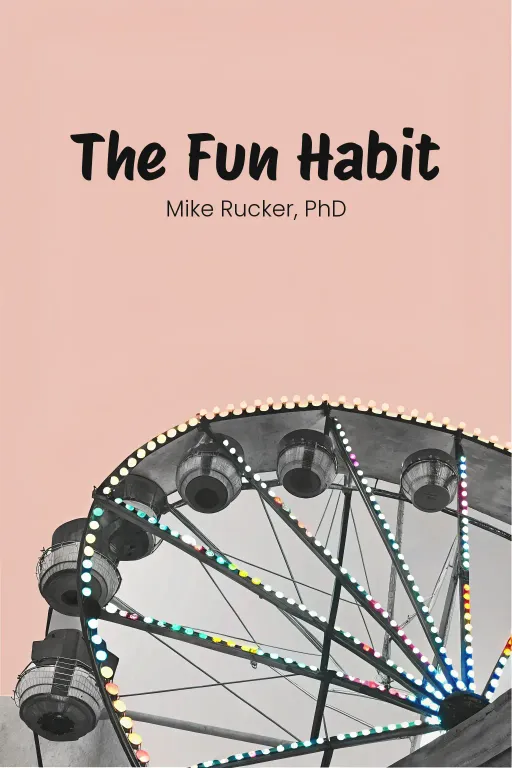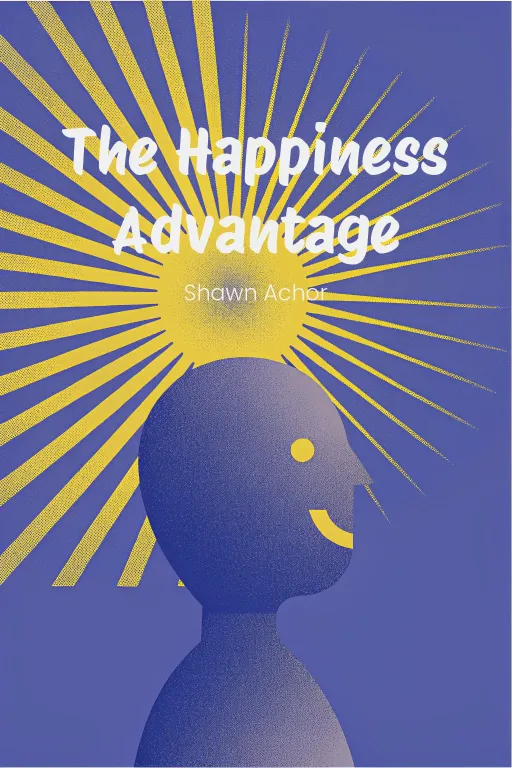
The Expectation Effect
David Robson
This book delves into the transformative impact of beliefs and expectations, termed "expectation effects," on various aspects of human health, emotion, cognition, and well-being. Through scientific studies, historical anecdotes, and practical applications, it highlights how our mindset shapes reality—from physical health and athletic performance to stress resilience, aging, and cognitive capabilities. By reframing negative beliefs and fostering positive expectations, individuals can unleash untapped potential, improve mental and physical health, and navigate life’s challenges with greater effectiveness. The overarching theme emphasizes the mind-body connection, urging readers to harness the power of expectation to enhance their quality of life.

Happier Hour
Cassie Holmes, PhD
This book examines the intricate relationship between time usage and happiness, suggesting that how individuals allocate and perceive their time significantly influences life satisfaction. The narrative integrates personal anecdotes, research insights, and practical strategies to illustrate how both excessive busyness and too much leisure can diminish happiness. Instead, the text advocates for intentional, meaningful time investment in activities like cultivating social connections, engaging in physical activity, practicing mindfulness, and finding joy in daily routines. Ultimately, it presents a cohesive framework to transform time into a fulfilling, happiness-enhancing resource.

The Four Noble Truths of Love
Susan Piver
"The Four Noble Truths of Love" by Susan Piver examines the intricate and fluid nature of love through the lens of Buddhist philosophy. The book reframes the Four Noble Truths to explore the impermanence of relationships, the discomfort caused by clinging to stability, and the transformative potential of meeting relational instability with mindfulness and compassion. Piver integrates personal anecdotes, practical meditative practices, and spiritual principles to offer readers tools for nurturing deeper connections. She emphasizes the need for emotional vulnerability, self-awareness, and intentional practices like lovingkindness meditation to embrace love as a dynamic, evolving journey rather than a fixed state.

Tranquility by Tuesday
Laura Vanderkam
"Tranquility by Tuesday" by Laura Vanderkam is a practical guide to achieving balance and satisfaction in life through intentional time management. By introducing nine actionable rules, the book empowers readers to develop routines, prioritize meaningful pursuits, and create flexibility through thoughtful planning. From establishing bedtime routines and scheduling weekly adventures to batching small tasks and committing to effortful leisure, these strategies aim to shift perspectives, reduce stress, and cultivate happiness even amidst busy schedules. Through real-life participant stories and actionable advice, Vanderkam demonstrates how adopting small, disciplined changes can lead to a more fulfilling and tranquil life.

The Gap and the Gain
Dan Sullivan
*The Gap and The Gain* by Dan Sullivan and Benjamin Hardy explores the psychological frameworks of the "GAP" and the "GAIN," emphasizing how shifting personal perspectives can lead to greater happiness, fulfillment, and success. The "GAP" mindset focuses on external comparisons and unfulfilled ideals, causing dissatisfaction and stress. In contrast, the "GAIN" mindset encourages gratitude, reflection on personal progress, and self-compassion. Backed by practical strategies, examples, and psychological theories, the book advocates for people to measure success based on growth and past achievements. Its framework aids individuals in fostering emotional resilience, motivation, and a more meaningful life.

The Fun Habit
Mike Rucker, PhD
"The Fun Habit" by Michael Rucker explores the transformative power of fun as a more effective and practical alternative to the elusive pursuit of happiness. Drawing on personal experiences, scientific research, and cultural insights, the book examines how incorporating fun into daily life enriches well-being, fosters connections, and combats stress. Through frameworks such as the PLAY model, strategies for savoring moments, and ideas for integrating fun into work, parenting, and social interactions, the author presents a compelling case for prioritizing intentional, action-oriented joy. Ultimately, fun is depicted as not only a source of personal growth and fulfillment but also as a powerful driver of community, creativity, and positive change.

The Happiness Advantage
Shawn Achor
"The Happiness Advantage" by Shawn Achor illuminates the key role happiness plays as a precursor to success, rather than its outcome, upending conventional beliefs that link success to eventual happiness. Integrating findings from positive psychology and neuroscience, the book presents seven actionable principles aimed at cultivating positivity, fostering resilience, and enhancing both personal and workplace performance. Achor uses empirical research, anecdotes, and case studies, offering highly relatable and practical strategies, such as the 20-Second Rule and the Zorro Circle, to shift mindsets, form positive habits, and build strong social connections. The ripple effect of happiness is emphasized as a vital force not just for individuals but in fostering collective, organizational, and cultural well-being.

You Can Buy Happiness (and It’s Cheap)
Tammy Strobel
"You Can Buy Happiness (and It’s Cheap)" by Tammy Strobel explores the relationship between material possessions, happiness, and the pursuit of meaningful living, advocating for a life centered on simplicity, community, and personal values. Through a mix of personal narratives, practical steps, and research insights, Strobel challenges consumerism’s promises of happiness and demonstrates how downsizing possessions, managing debt, and prioritizing relationships and experiences can lead to freedom and contentment. The book emphasizes themes of intentional living, the value of time and gratitude, and the joy found in small pleasures, encouraging readers to embrace minimalism to foster deep interpersonal connections and overall well-being.